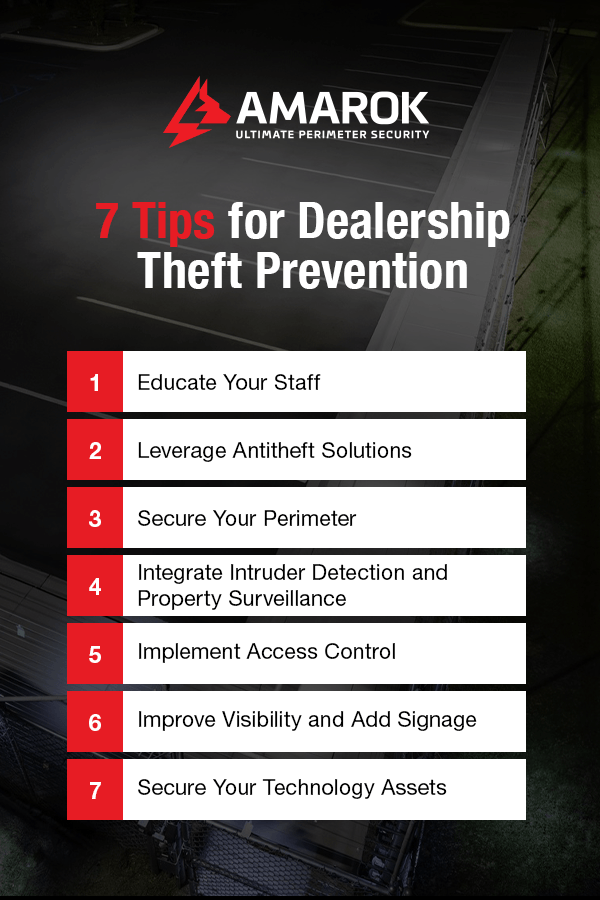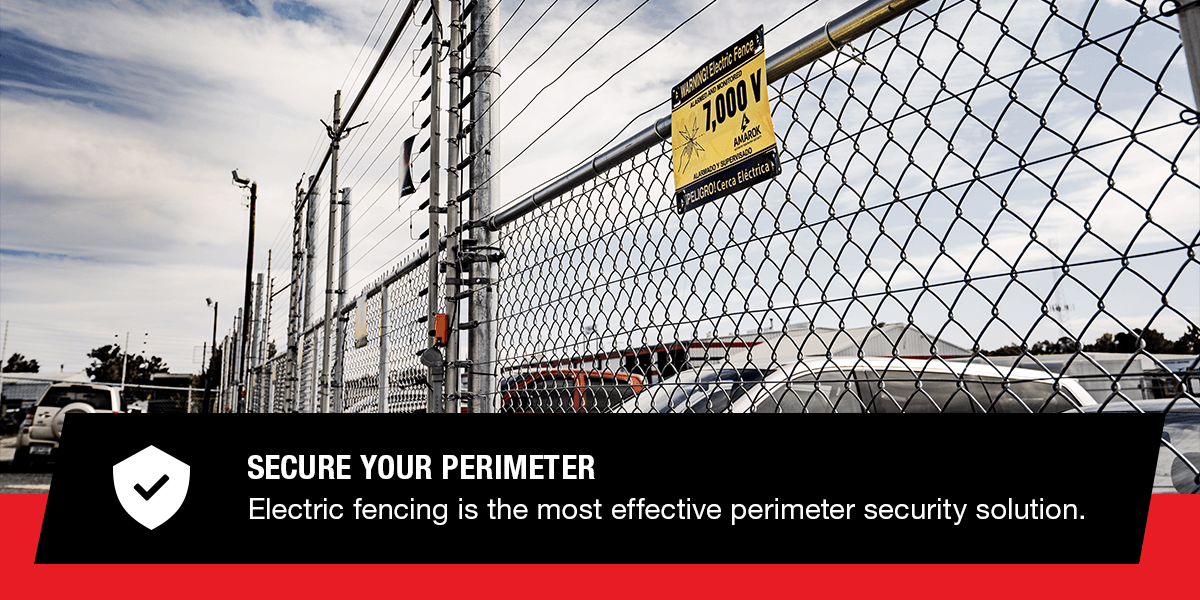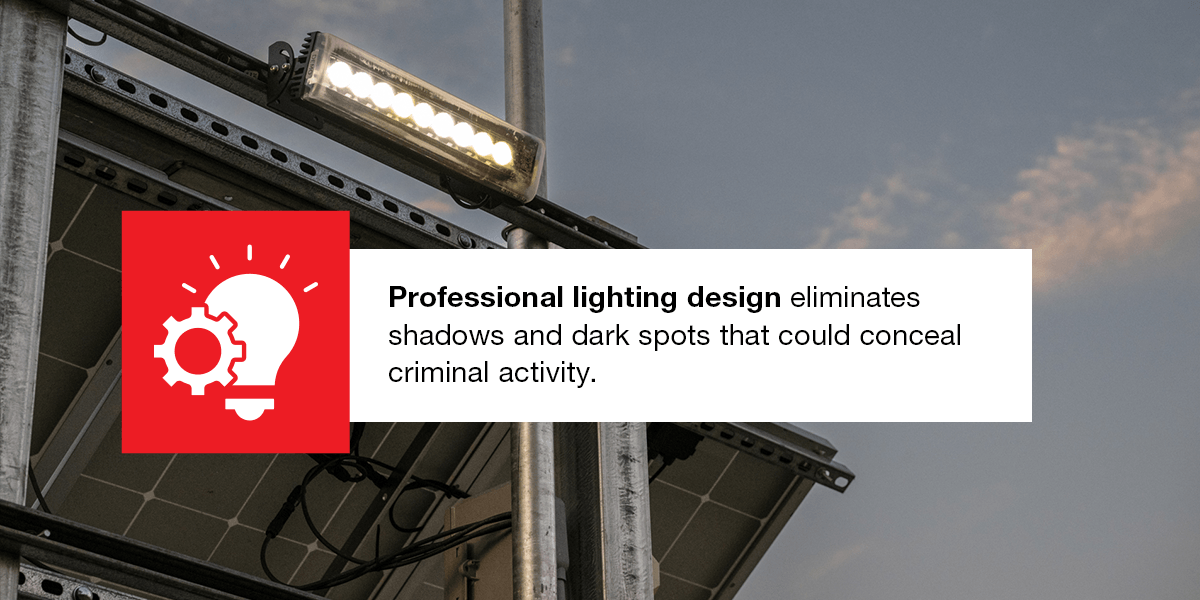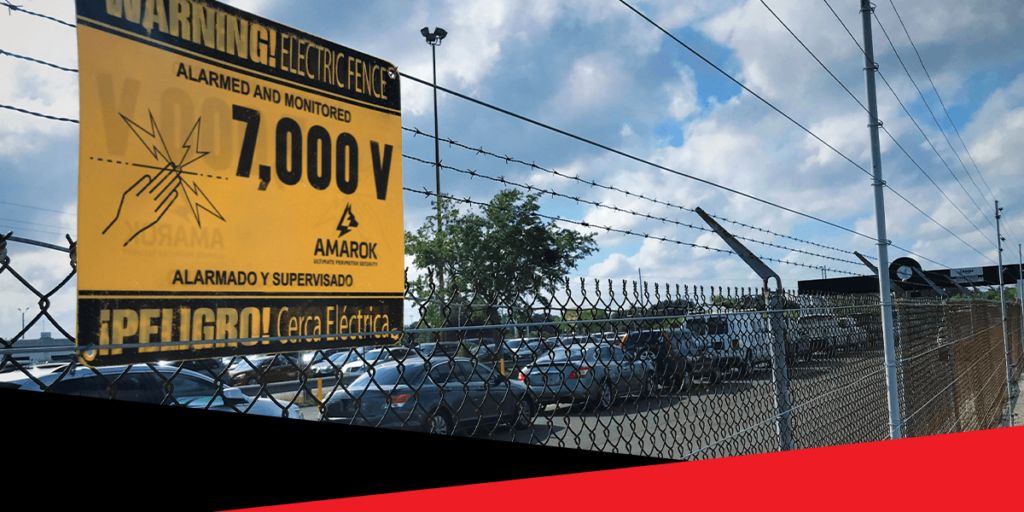There are approximately 18,133 new car dealerships in the United States. Between unsold vehicles and customer cars brought in for maintenance and repair, each dealership stores millions of dollars in inventory.
These dealership lots present an attractive target for vehicle theft, making security measures essential for protecting valuable assets and maintaining customer trust. As theft techniques become increasingly sophisticated, auto dealerships must adapt their security strategies.
The Importance of Car Dealership Security
The automotive industry is currently facing an unprecedented surge in vehicle theft. In 2023, car theft was up by more than 25% compared to recent years.
This dramatic increase isn’t limited to complete vehicle theft. Criminals increasingly target valuable components like catalytic converters and computer powertrain controllers (CPCs), which can be quickly removed and sold through illegal channels.
Several factors have contributed to this troubling trend:
- Evolved theft methods: Modern theft techniques have evolved significantly, with some professional thieves being able to use a vehicle’s electronics to access it illegally.
- Keyless entry systems: The widespread adoption of keyless entry systems has introduced new vulnerabilities. Criminals now employ illegal scanners to duplicate “smart keys.”
- Refined distraction techniques: Sophisticated distraction methods, like key-swap scams, allow thieves to exchange legitimate keys with duplicates while talking to salespeople.
- Organized crime: Organized crime rings target car dealerships because of the high concentration of valuable vehicles and parts.
- Advanced tools: Cutting-edge technology and tools make theft operations faster and more efficient than ever before.
The consequences for dealerships extend beyond immediate monetary losses. Insurance premiums typically spike after theft incidents, impacting long-term profitability. Customer trust erodes quickly when their vehicles are targeted, leading to damaged relationships and lost business.
Dealerships also face potential liability issues and reputation damage that can take years to rebuild. The lost productivity during theft investigation and recovery efforts further compounds these losses.
7 Tips for Dealership Theft Prevention

As theft techniques become more sophisticated, dealerships must implement security strategies that address common vulnerabilities. The following seven steps create layers of protection that work together to safeguard your valuable assets, protect customer vehicles, and maintain your reputation.
1. Educate Your Staff
Your dealership’s first line of defense against vehicle theft is a well-trained staff. Professional criminals often scout locations before attempting theft, making it crucial for employees to recognize and respond to suspicious behavior. Staff must learn to identify warning signs such as:
- Multiple people arriving together but splitting up to examine different vehicles
- Individuals taking photos of key fobs or security features
- Unusual questions about security systems or closing procedures
Identity Theft Prevention
Identity theft prevention is also fundamental. Criminals often use complex methods to fraudulently purchase vehicles. Staff must be trained in proper document verification procedures and understand the common signs of identity fraud. This training should include knowing how to spot altered identification documents and recognizing inconsistencies in customer information.
Key Management
Key management is another critical way to improve car dealership security. Implement strict key storage and tracking protocols, with detailed access logs and vehicle movement. Staff should understand the mechanics of key-swap scams and be trained to maintain control of keys during customer interactions. Regular audits of key logs and storage systems help ensure compliance with these protocols.
Customer Safety Protocols
Customer safety protocols are also essential. Employees should know how to safely approach suspicious individuals, when to alert security personnel, and how to protect customers during potential security incidents. Security drills help staff maintain readiness while reinforcing proper response procedures. Collaboration with local law enforcement can enhance these training sessions through real-world insights and updated threat information.
Test-Drive Procedures
Test-drive procedures require particular attention. Staff should verify and retain customer licenses, limit test-drive routes to preapproved areas, and maintain communication with the dealership throughout the drive. Some dealerships have successfully implemented policies requiring sales staff to drive the vehicle first and switch seats with the customer in a safe location.
2. Leverage Antitheft Solutions
Modern antitheft technology provides essential protection for valuable inventory. Essential antitheft measures for comprehensive protection include:
- GPS tracking systems: These offer real-time location monitoring and movement alerts, creating geofenced boundaries around your dealership. These systems automatically alert security personnel when vehicles leave designated areas and provide crucial tracking data for recovery efforts if theft occurs.
- Physical deterrents: Steering wheel clubs and wheel locks are simple, efficient solutions that create visible barriers that discourage theft. When properly installed, kill switches prevent unauthorized vehicle startup even if thieves access the keys. Removing battery cables or electrical fuses from display vehicles after hours is also effective.
- Electronic key management: This approach revolutionizes inventory security through controlled access and detailed tracking. These systems can restrict access based on staff roles and schedules. Integrating electronic key management with inventory management systems provides real-time vehicle location and status updates.
- Regular testing and maintenance: Monthly inspections verify the proper operation of all security devices. Regular staff training emphasizes the correct implementation of security protocols. Adequate documentation of all security measures creates audit trails while supporting potential insurance claims. Seasonal security audits identify new vulnerabilities as criminal tactics and weather patterns change.
3. Secure Your Perimeter
Perimeter security is the most critical component of dealership protection. Stopping criminals before they access your property prevents theft altogether. Electric fencing is the most effective perimeter security solution.
These systems create a formidable barrier through a safe but memorable pulsed electric shock that deters would-be criminals. The prominent warning signs and visible electrical components make potential thieves reconsider their targets before attempting entry.
Electric fencing provides numerous security advantages for auto dealerships:
- A physical barrier that actively prevents unauthorized entry
- Immediate detection of breach attempts through monitoring systems
- Cost-effective compared to a constant security guard presence
- Multiple configuration options to suit property requirements
- Year-round protection in all weather conditions
- Enhanced security when integrated with existing fencing
The key difference between electric fencing and traditional perimeter barriers lies in their active deterrent capabilities. Contact with an electric fence can trigger immediate alarms, alerting security personnel to potential breaches before criminals gain access to the property. This early warning system and the psychological deterrent effects make electric fencing a superior choice for dealership security.
When integrated with existing perimeter barriers, electric fencing creates a security solution that significantly reduces the risk of unauthorized access. Additionally, solar-powered options provide operation even during power outages or if thieves try to tamper with the power.

4. Integrate Intruder Detection and Property Surveillance
A comprehensive approach to dealership security must include a layered approach. When properly integrated, your security systems work together to provide complete property coverage while enabling rapid response to potential threats.
Advanced camera systems enhance protection through night vision cameras, wide dynamic range models, pan-tilt-zoom cameras for active threat tracking, two-way audio solutions, and weather-resistant housings to ensure reliable operation. Video surveillance technology provides multiple benefits beyond basic security:
- Physical deterrent effect through visible camera presence
- High-definition image capture for clear identification
- Real-time visibility enabling immediate response
- Exhaustive coverage through strategic camera placement
- Dual verification capability for faster law enforcement response
Intruder detection systems add an essential layer of protection by identifying potential threats before they develop into security breaches. Advanced detection capabilities include:
- Motion sensors covering critical areas
- Perimeter breach detection
- Heat and infrared detection systems
- Glass break sensors
- Door and window contact monitors
Integrating lights and alarms creates another crucial security layer. When a breach is detected, automated systems can flood targeted areas with bright lights, trigger audible warnings to deter intruders, and alert security personnel to exact threat locations. They also activate recording systems for evidence capture and initiate emergency response protocols.
Professional monitoring centers maximize the system’s effectiveness through constant observation. Trained security personnel verify potential threats, coordinate emergency response, and maintain detailed incident logs. Integration with local law enforcement improves response times while meeting dual verification requirements for police dispatch.
5. Implement Access Control
Physical barriers and controlled access points form the foundation of effective dealership security. Gate Access Control helps manage and monitor all entry and exit points while maintaining efficient business operations. Vehicle barriers and security gates create initial control points. Automated credential readers and license plate recognition systems enable smooth processing while maintaining security.
Access control should include turnstiles to manage pedestrian traffic, vehicle barriers at critical control points, and reinforced doors with electronic locks. Car dealerships should also implement secure overnight storage bays and strategically position vehicles to block exit points after hours to create multiple layers of protection.
Electronic authentication systems enable access control at auto dealerships. These systems allow security teams to restrict access based on staff roles and schedules while maintaining detailed logs of all property access. The ability to modify access privileges instantly adds flexibility while maintaining security, and integration with existing alarm systems creates a comprehensive security solution for automotive dealerships.
Vehicle management procedures are critical in access control. Clear protocols for moving and storing vehicles help prevent unauthorized access or theft. Designated secure areas for high-value vehicles and customer cars provide additional protection. Additionally, the strategic placement of barriers and security vehicles creates an extra obstacle for potential thieves.
6. Improve Visibility and Add Signage
Strategic lighting and clear signage create a powerful deterrent for car dealerships. Nighttime presents unique challenges, with reduced visibility and traffic often attracting more criminal activity. Professional lighting eliminates shadows and dark spots that would otherwise conceal criminal activity. When combined with proper warning signs, these elements communicate a serious security presence to help prevent theft attempts.

Modern lighting technology offers considerable advantages for dealership security:
- Ultra-bright LED systems provide consistent illumination
- Motion-sensor activated systems in less-trafficked zones for energy efficiency
- Automatic dusk-to-dawn operation
- Weather-resistant fixtures ensure reliability
- Protective covers prevent tampering
Regular lighting system maintenance is critical for consistent protection. Monthly inspections should check for burnt-out bulbs, damaged fixtures, and proper coverage patterns. Emergency backup systems ensure continuous operation during power outages when properties often face increased security risks.
Proper layout can also enhance visibility. Car dealerships should design spaces to maximize natural surveillance through clear sight lines and strategic vehicle placement. High-value inventory should be in well-lit, highly visible areas that are constantly observed. Traffic patterns should support security objectives while maintaining customer convenience.
7. Secure Your Technology Assets
Modern car dealerships rely on technology for daily operations. Their critical systems support multiple functions, including:
- Parts inventory lookup and ordering
- Vehicle diagnostic testing and recalibration
- Safety system programming and updates
- Performance metrics tracking
- Customer financing applications
- Title and registration processing
Cyberattacks on car dealerships have increased significantly, with 15,000 auto dealerships in the US being affected by a single cyberattack in June 2024. Hackers who disable security protocols can gain access to customer data and other damaging information, so it’s important to have countermeasures in place. Network security provides the foundation for dealership cybersecurity. Next-generation firewalls and intrusion detection systems protect against digital threats. Regular security audits identify potential vulnerabilities before they can be exploited, and encrypted communications protect sensitive data.
The Federal Trade Commission (FTC) Safeguards Rule imposes specific requirements on car dealers regarding customer data protection, making cybersecurity a regulatory requirement. Compliance with the Rule requires implementing comprehensive security programs, including regular risk assessments and employee training. Documentation of security measures and incident response procedures must be maintained and updated regularly, ensuring regulatory compliance and practical security effectiveness.
Technology management requires constant attention for effective dealership security. Software updates and security patches must be promptly applied to address new vulnerabilities. Remote access systems require particular attention, as they often present attractive targets for cybercriminals. Employee cybersecurity training should be ongoing, with regular updates to address emerging threats and new protection methods.
Protect Your Dealership With AMAROK
As vehicle theft continues to evolve, the need for automotive dealership security solutions becomes increasingly paramount. AMAROK provides the ultimate perimeter security through The Electric Guard Dog™ Fence, complemented by our industry-leading integrated video surveillance, access control, and perimeter detection systems.
Stop theft before it happens with the industry’s most trusted perimeter security partner. Contact an AMAROK security expert online to schedule a threat assessment for your dealership.






